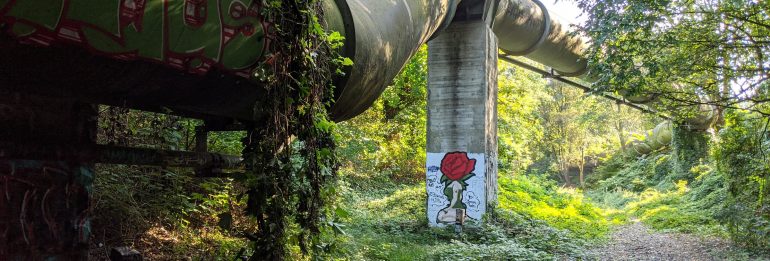In an era where climate change dominates global discourse, carbon capture and storage (CCS) technology has emerged as a topic of significant interest and controversy. At the forefront of this conversation is Summit Carbon Solutions and its proposed $5.5 billion, 2,000-mile pipeline – a project hailed by some as a beacon of hope and lambasted by others as fraught with risks.
Summit's Ambitious Pipeline Project
Set to originate from 34 ethanol plants spanning five states, the pipeline aims to transport captured CO2 emissions to North Dakota for deep underground storage. However, Summit's endeavors have not gone without hurdles. The North Dakota regulators, earlier this month, raised red flags over potential cultural, geological, and landowner concerns, denying the siting permit for the proposed route. Undeterred, Summit has petitioned for reconsideration.
While Summit is leading the charge, they aren't the lone players in this arena. Navigator CO2 Ventures and Wolf Carbon Solutions are also keen on setting up similar pipelines, indicating a trend that seeks to blend environmental responsibility with industrial progress.
The Science and Politics of Carbon Capture
At its core, carbon capture is about trapping CO2 emissions, primarily from industrial sources, and subsequently storing them deep underground. Proponents argue that this technology is a critical tool in the fight against climate change. It offers an opportunity to offset emissions from sectors where reductions are challenging.
However, detractors claim that CCS is merely a stopgap, potentially diverting attention and investment from renewable solutions like solar and wind. Moreover, the optics of CCS allow fossil fuel companies to purport climate responsibility without making substantive operational changes.
Recent federal tax incentives have elevated carbon capture from theoretical discourse to potential profitability. With the Biden administration allocating billions for CCS endeavors, there's clear federal backing for projects like Summit's. Eminent personalities, including North Dakota's Republican Gov. Doug Burgum and oil tycoon Harold Hamm, have also expressed their support.
The State-by-State Battle
The regulatory journey for Summit's project varies across states. Iowa is gearing up for an evidentiary hearing set to span several weeks, with a final verdict awaited post-hearing. Minnesota's focus is on the environmental implications of Summit's pipeline in two counties, with a hearing set for the end of August.
In contrast, South Dakota expects a conclusive decision by mid-November. Interestingly, Nebraska lacks a centralized regulatory body for CO2 pipelines, leading Summit to negotiate directly with individual counties.
Despite the North Dakota setback, legal experts believe that Summit hasn't reached a dead-end. Derrick Braaten, a legal voice on the matter, opines that if Summit can address the concerns raised, other states might view their proposal more favorably.
Landowner Concerns: The Eminent Domain Debate
A primary point of contention for the pipeline is the concept of eminent domain, wherein private land can be commandeered for public use, with compensation. Many landowners, represented by attorney Brian Jorde, view this as an intimidating tactic.
Summit has been proactive in obtaining voluntary easements, claiming that nearly three-quarters of the proposed pipeline route has landowner support. Yet, the genuineness of this 'voluntary' support, when eminent domain looms large, remains under scrutiny.

All parties need to come to a consensus
The Future of CO2 Storage
For Summit, the underground storage application is yet another hurdle. The decision-making process, overseen by a panel that includes Gov. Burgum, is still under wraps. Collaborative efforts with Minnkota Power Cooperative hint at Summit's backup plans for storage facilities. Yet, even this avenue faces legal challenges, with a North Dakota landowners group contesting the state's approach to CO2 and gas storage on private lands.
In the grand scheme, Summit's pipeline is a microcosm of the broader CCS debate, embodying the complexities of integrating industrial growth with environmental stewardship. As hearings proceed and decisions are rendered, the project's fate could set a precedent for the role of carbon capture in America's future.
©GlobalCO2.uk





